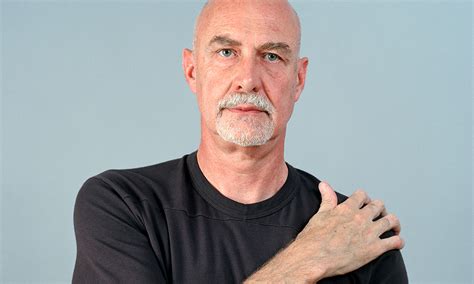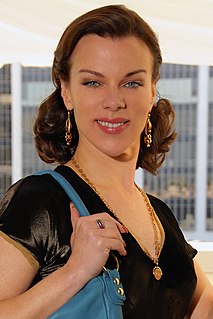A Quote by Zack Snyder
You can't teach anyone. You can't tell anyone. That's the thing you have to sit down and experience in order for it to mean anything. You can't intellectualize it. It's like why movies are cool. It's a combination of pictures and design and acting and music can create an experience that is outside of the experience that you can actually have in reality, which gets to my motion picture philosophy. People are like, 'aren't you trying to make the movies as real as you can?'
Related Quotes
To an ever greater extent out experience is governed by pictures, pictures in newspapers and magazines, on television and in the cinema. Next to these pictures firsthand experience begins to retreat, to seem more and more trivial. While it once seemed that pictures had the function of interpreting reality, it now seems they have usurped it. It therefore becomes imperative to understand the picture itself, not in order to uncover a lost reality, but to determine how a picture becomes a signifying structure of its own accord.
Even then, I didn't quite know what to make of it [captain Kirk death]. I was mystified by why I was doing it, why I was so driven to do it, and why it was affecting me like it was. I still don't know what it means. It's a strange singular experience. I don't even know anyone to talk to about it because I don't know anyone who's had that experience.
[W]hen you're shooting a doc, you're trying to class it up because you can. You know, you're trying to make this feel like cinematic experience. And when you're doing fiction you're trying to do the opposite thing you're trying to take this very artificial experience this very artificial experience and make it feel real and visceral.
I think it's really cool that videogames are getting more and more sophisticated and believable, and that people who worked on movies are being asked to art direct and design video games and characters, so they look better and better. When I see Jurassic Park on the screen, I predicted that games would be able to create a virtual experience that was just as real as the movies - we're not quite there yet, but it's getting better all the time.
I'm not a huge fan of 3-D, though. Honestly, I think that movies are an immersive experience and an audience experience. There's nothing like seeing a film with 500 people in a theater. And there's something about putting on 3-D glasses that makes it a very singular experience for me. Suddenly I'm not connected to the audience anymore.
Certainly Christianity is an experience, but equally clearly the validity of ane experience has to be tested. There are people in lunatic asylums who have the experience of being the Emperor Napoleon or a poached egg. It is unquestionably an experience, and to them a real experience, but for all that it has no kind of universal validity. It is necessary to go far beyond simply saying that something comes from experience. Before any such thing can be evaluated at all, the source and character of the experience must clearly be investigated.
When we go to the movies, we identify with the characters we see. That's why we go to the movies; we have a voyeuristic experience; we have an out of the body experience. The screen is more real than our thoughts are at the moment we are looking at the film and we place ourselves in the place of the people on the screen, and when they behave nobly, it makes us feel noble, when they are sad and when they have lost love, we feel sad; we can identify with that.
By inner experience I understand that which one usually calls mystical experience: the states of ecstasy, of rapture, at least of meditated emotion. But I am thinking less of confessional experience, to which one has had to adhere up to now, that of an experience laid bare, free of ties, even of an origin, of any confession whatever. This is why I don't like the word mystical.






































